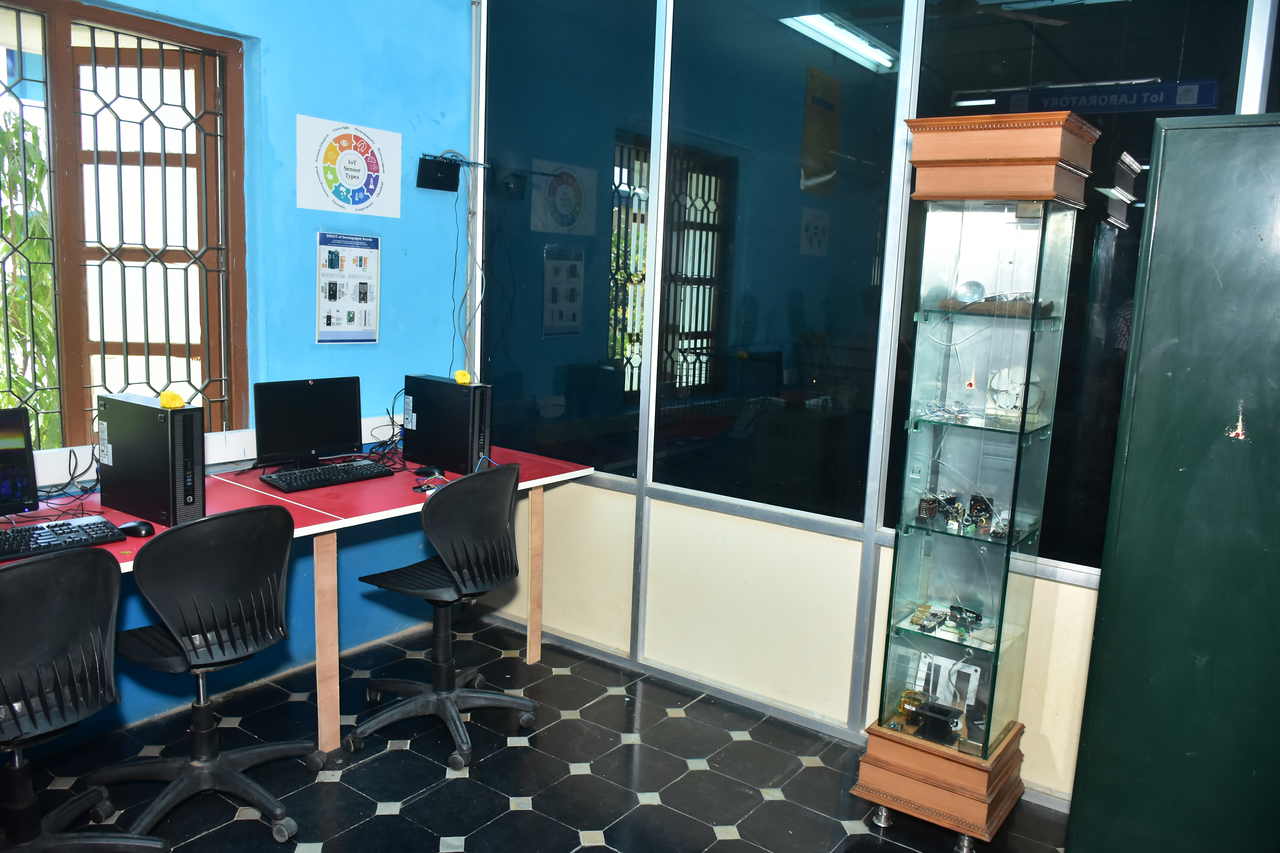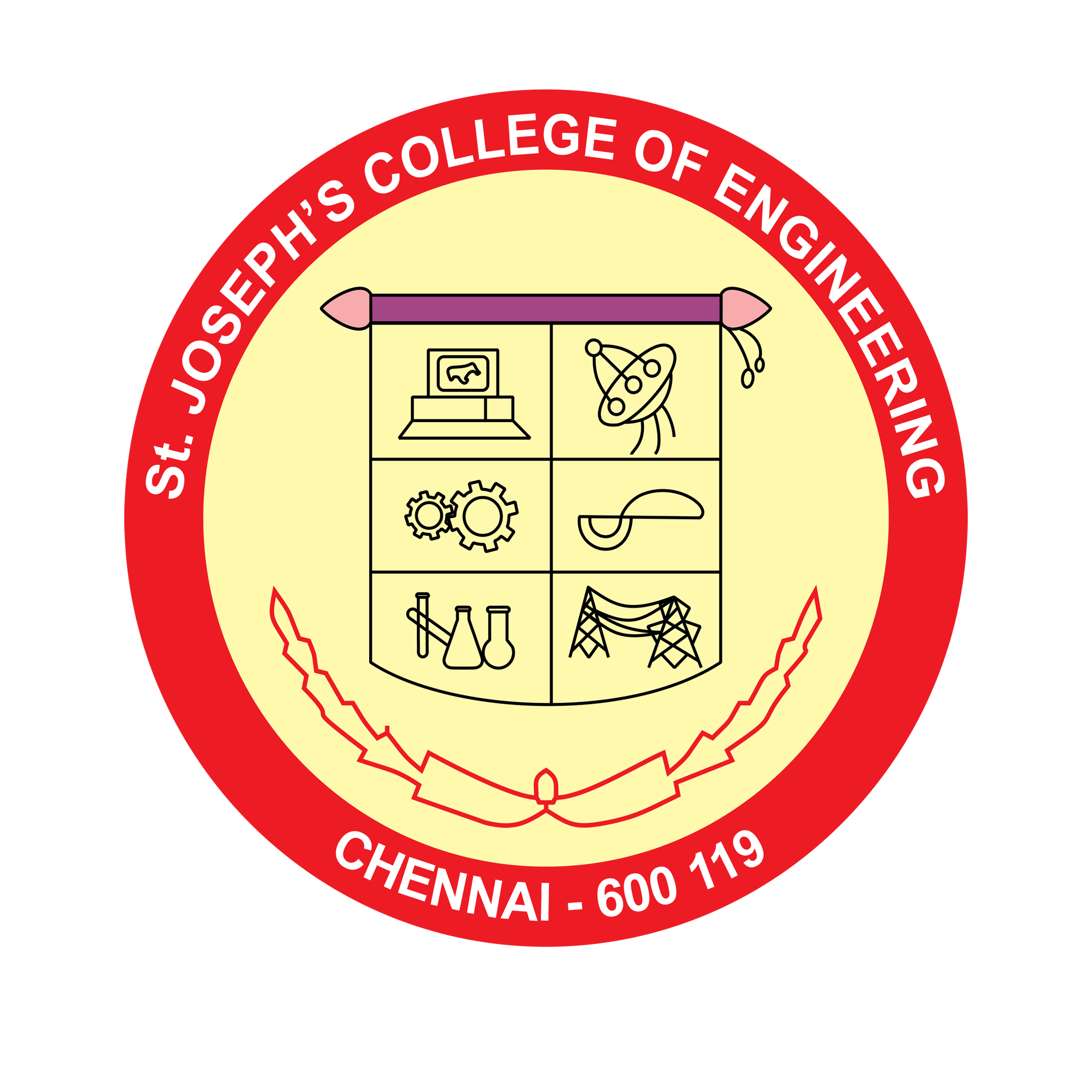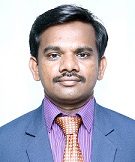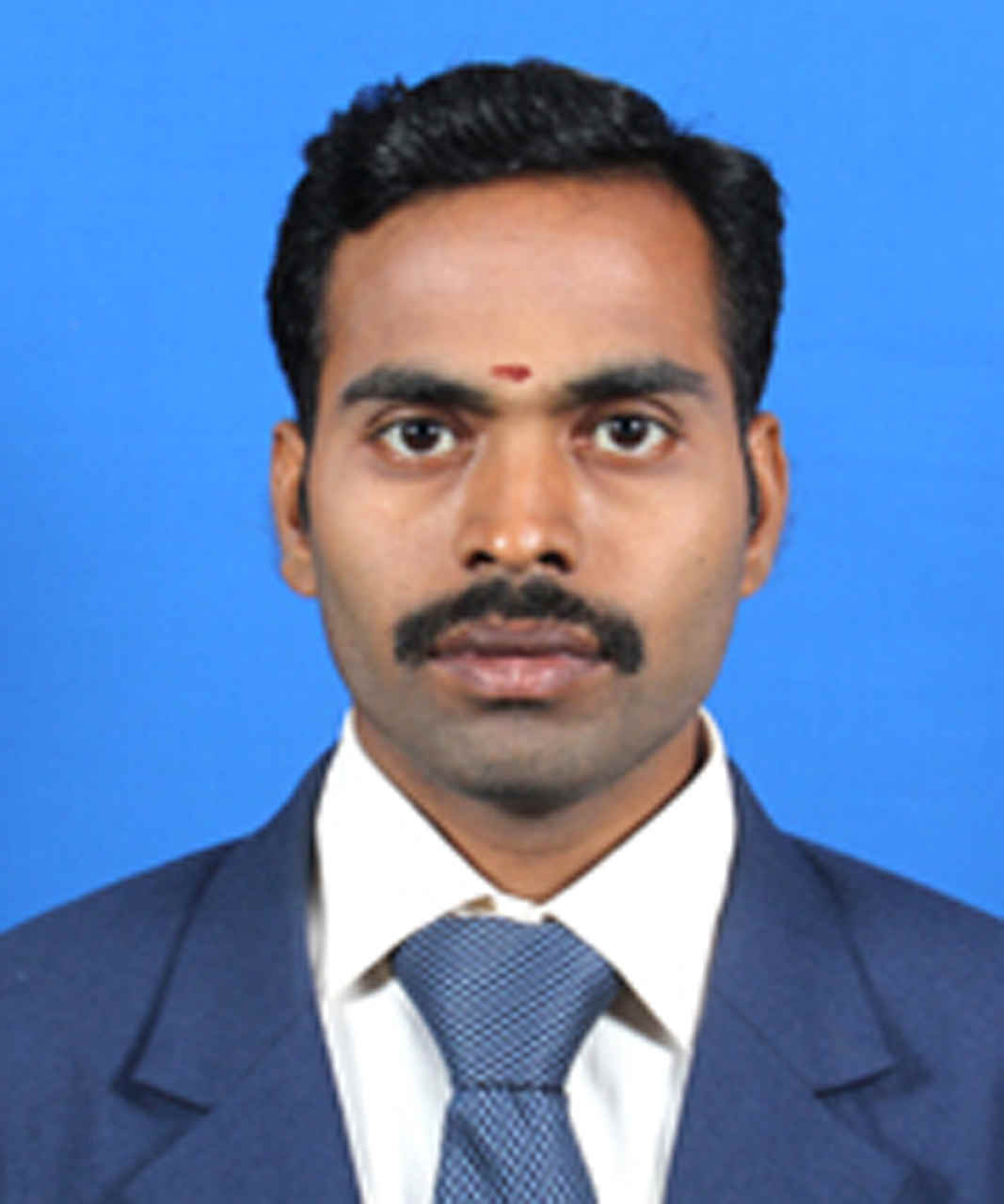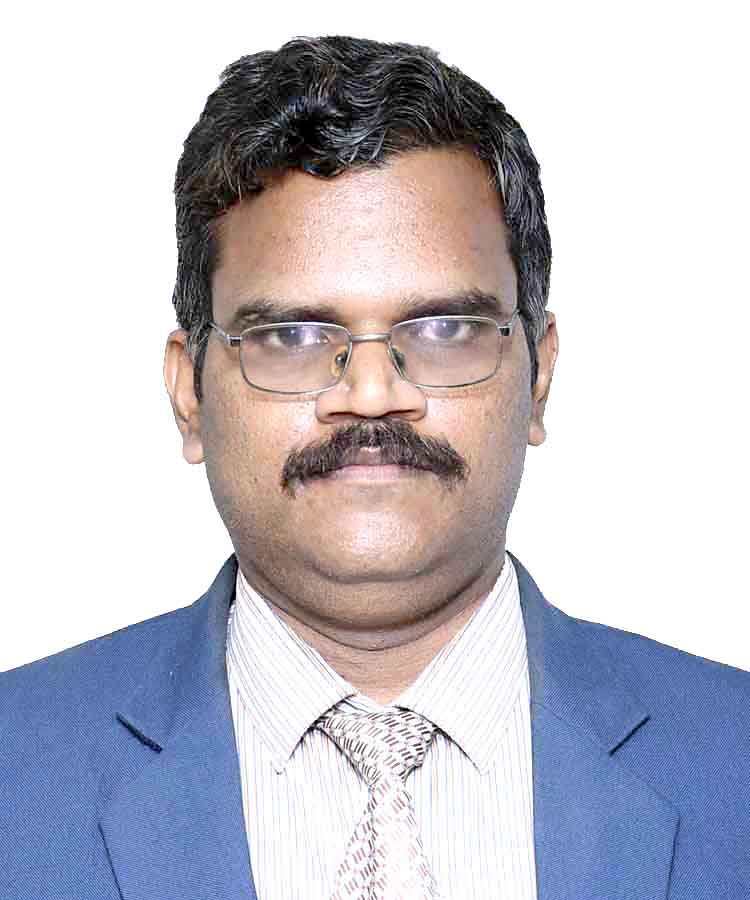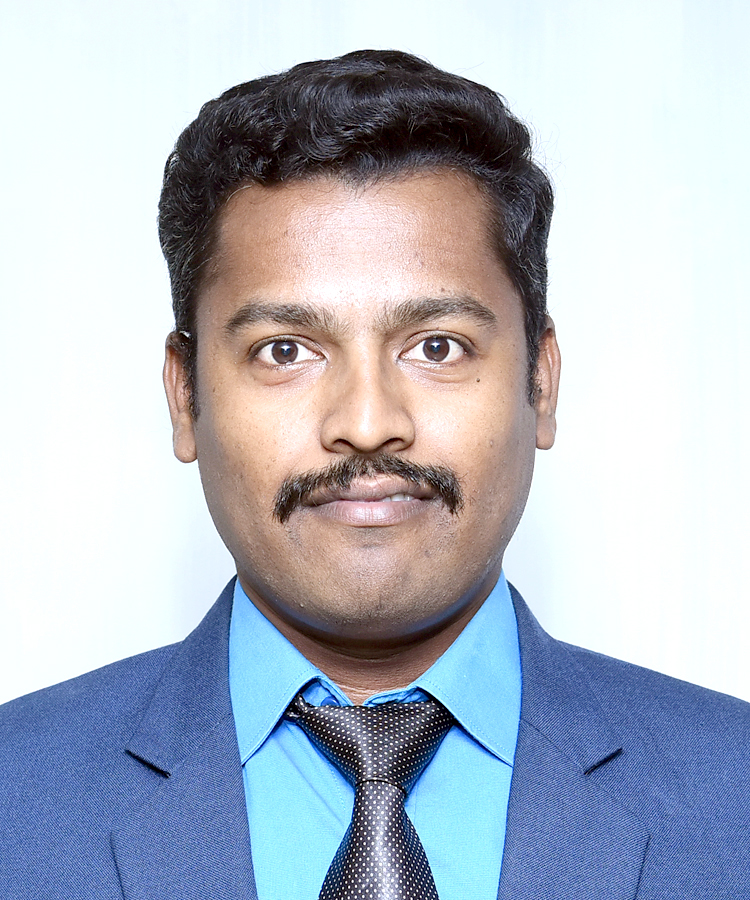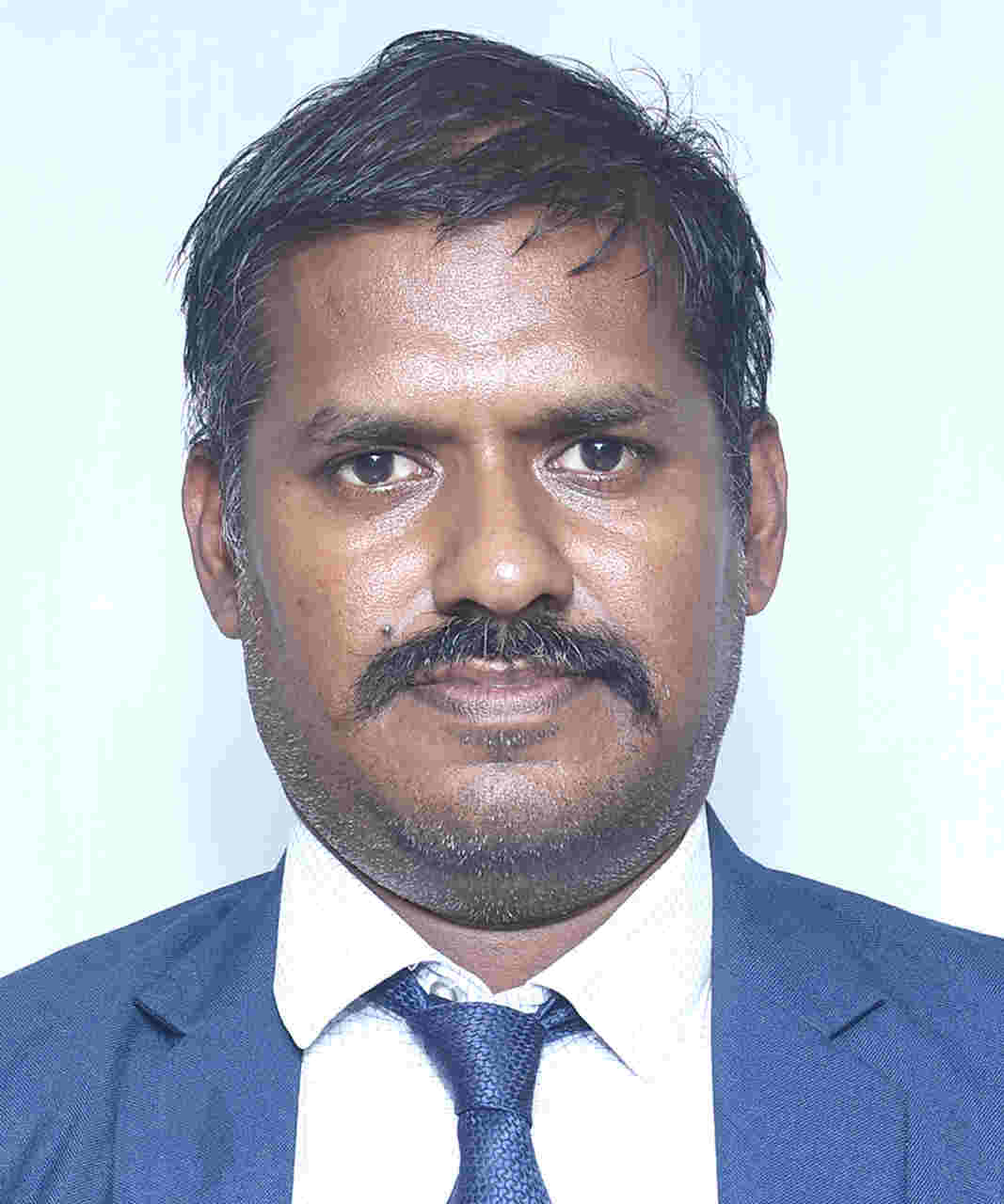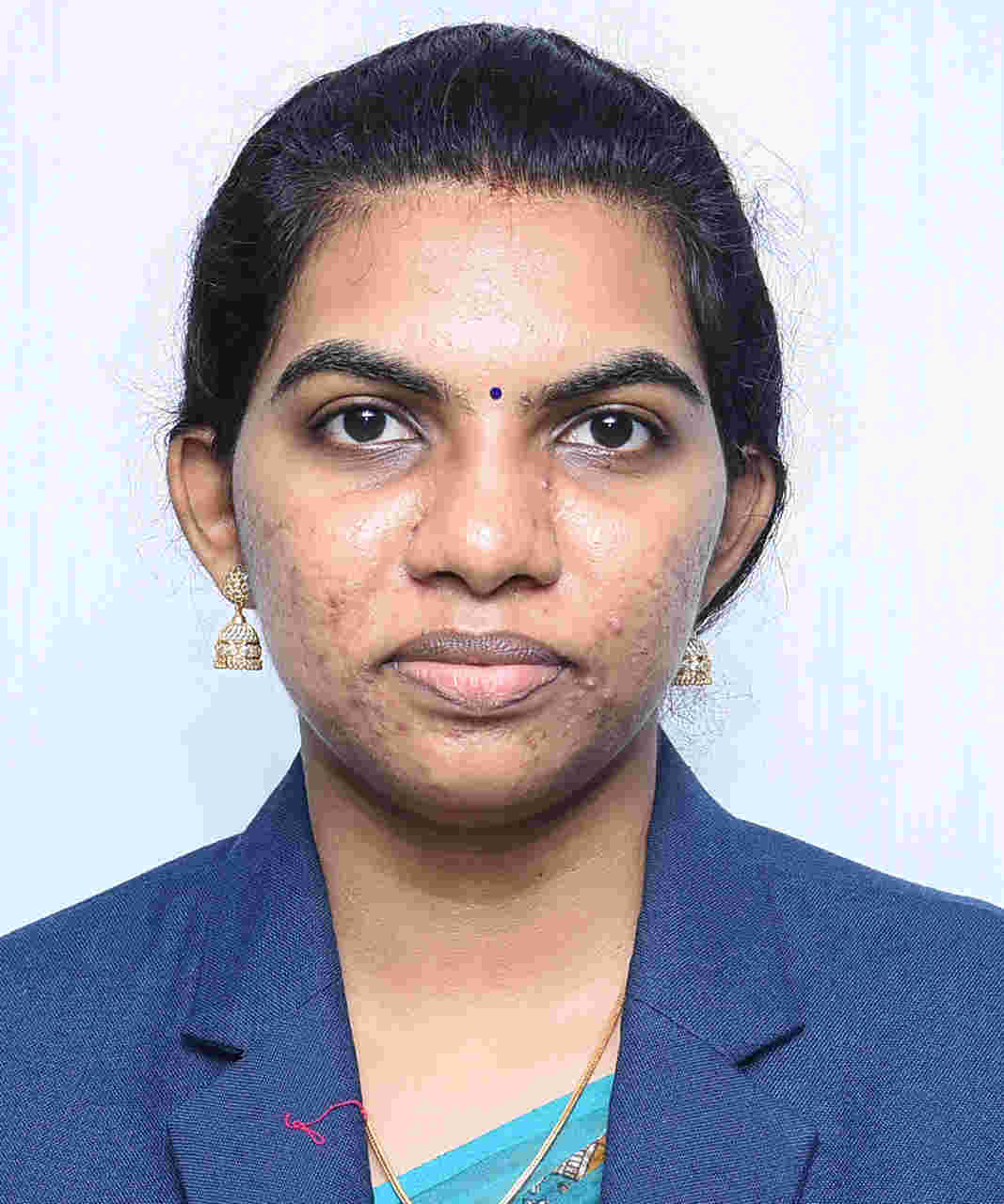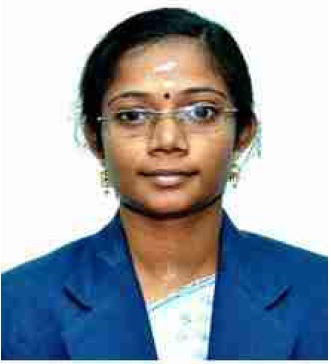Faculty
Home
The Department was incepted in the year 1996 with Bachelors degree in the faculty of Electrical and Electronics Engineering and is accredited by National Board of Accreditation (NBA) for three times since 2003.The sanctioned student intake is 90. We strive to give our students a holistic learning experience aiding their professional growth with a blend of academics, co-curricular and extra-curricular activities in the right proportion.
Vision
To promote the Department of Electrical and Electronics Engineering as a pioneer in education and research by imparting quality education, creating and upgrading the academic facilities and inculcating professional values to the students to face the challenges in the dynamic global society.
Mission
To attain utmost qualities of teaching-learning process and provide a vibrant environment for the students to exhibit their fullest potential in the field of Electrical and Electronics Engineering. To improve research and development skills among students towards providing technical solutions with ethical values to meet social challenges. To develop the students to face the technological requirements of the industry with professional values and make them employable and to impart the spirit of entrepreneurship for their successful career.
Program Educational Objectives (PEO)
Students Corner
Industrial Visit
An Industrial visit gives the student knowledge and exposure needed to grasp certain engineering techniques and terminologies for easier understanding. An in-plant training increases a student's. opportunity of get a job after graduation. An in-plant training adds more experience to the portfolio of the student
(Academic Year - 2024 - 2025)
(Academic Year - 2023 - 2024)
(Academic Year - 2023 - 2024)
National Level Technical Symposium
Guest Lecture
(Academic Year - 2023 - 2024)
(Academic Year - 2022 - 2023)
Clubs
Academic Achievements



sports
Higher studies
Academics
Syllabus
Newsletter
November 2024Click Here
October 2024Click Here
September 2024Click Here
August 2024Click Here
July 2024Click Here
June 2024Click Here
May 2024Click Here
March 2024Click Here
February 2024Click Here
January 2024Click Here
Research
Staff Patents
Patent details 23-24Click Here
Patent details 22-23Click Here
Students Patents
Staff Publications
Publications detailsClick Here
Students Publications
Funded Projects
Mou
MOu details
Mou detailsClick Here
Supervisor Details
| Name of the Supervisor | Area of Specialization | No.of students | No. of students completed |
|---|---|---|---|
| Dr.T.V. Narmadha | Soft Computing | 08 | 04 |
| Dr.M.Ramesh Babu | Power System, Renewable Energy Sources | 06 | 05 |
| Dr.T.D.Sudhakar | Power Systems ,Renewable Energy Sources | 05 | 02 |
| Dr.V.Krishnakumar | Power Electronics | 07 | 02 |
| Dr.M.Venmathi | Power Systems, Renewable Energy Sources | 06 | 01 |
Elite Alumni
Video
Teaching and Learning Process
CO-PO
PO1: Engineering Knowledge Apply the knowledge of Mathematics, Science, Engineering fundamentals, and Engineering specialization to the solution of Complex Engineering Problems.
PO2: Problem Analysis Identify, formulate, research literature, and analyze engineering problems to arrive at substantiated conclusions using first principles of Mathematics, Natural, and Engineering Sciences.
PO3: Design/Development of Solutions Design solutions for complex engineering problems and design system components, processes to meet the specifications with consideration for the public health and safety, and the cultural, societal, and environmental considerations.
PO4: Conduct Investigations of Complex Problems Use research-based knowledge including design of experiments, analysis and interpretation of data, and synthesis of the information to provide valid conclusions.
PO5: Modern Tool Usage Create, select, and apply appropriate techniques, resources, and modern engineering and IT tools including prediction and modeling to complex engineering activities with an understanding of the limitations.
PO6: The Engineer and Society Apply reasoning informed by the contextual knowledge to assess societal, health, safety, legal, and cultural issues and the consequent responsibilities relevant to the professional engineering practice.
PO7: Environment and Sustainability Understand the impact of the professional engineering solutions in societal and environmental contexts, and demonstrate the knowledge of, and need for sustainable development.
PO8: Ethics Apply ethical principles and commit to professional ethics and responsibilities and norms of the engineering practice.
PO9: Individual and Team Work Function effectively as an individual, and as a member or leader in teams, and in multidisciplinary settings.
PO10: Communication Communicate effectively with the engineering community and with society at large. Be able to comprehend and write effective reports documentation. Make effective presentations, and give and receive clear instructions.
PO11: Project Management and Finance Demonstrate knowledge and understanding of engineering and management principles and apply these to one’s own work, as a member and leader in a team. Manage projects in multidisciplinary environments.
PO12: Life Long Learning Recognize the need for, and have the preparation and ability to engage in independent and life-long learning in the broadest context of technological change.
Program Specific Objectives
Our Graduate Will be able to
PSO1:Identify, understand and analyze the problems in the field of electrical and electronics engineering by applying the principles of mathematics, science and engineering.
PSO2:Apply the acquired knowledge of hardware and software tools along with the analytical skills to work with electrical and electronic equipment and arrive at optimal solutions to suit industrial needs.
PSO3:Demonstrate core competencies and solve engineering problems by performing research in the areas of electrical drives, control and power systems for the sustainable development of the society.
PSO4:To take up roles in a team, develop managerial skills, and contributes towards the electrical community globally.
Program Educational Objectives
PEO1:To provide a strong foundation for students to have a successful career in electrical and its related fields and to pursue higher education and research.
PEO2:To improve their mathematical and scientific knowledge to solve emerging real world problems related to power, electronics, control systems, field theory and signal processing and will use their communication and intellectual skills for execution of complex technological solutions.
PEO3:To fulfil the needs of society in solving technical problems using engineering principles, tools and practices, in an ethical and responsible manner, in service to the society.
PEO4:To develop their self-learning capability and adaptability to encounter various complex practical problems in multi-disciplinary engineering projects effectively and undertake leadership roles when appropriate.
PEO5:To promote student's awareness of lifelong learning to enhance and maintain professional skills.
Feedback
Laboratory
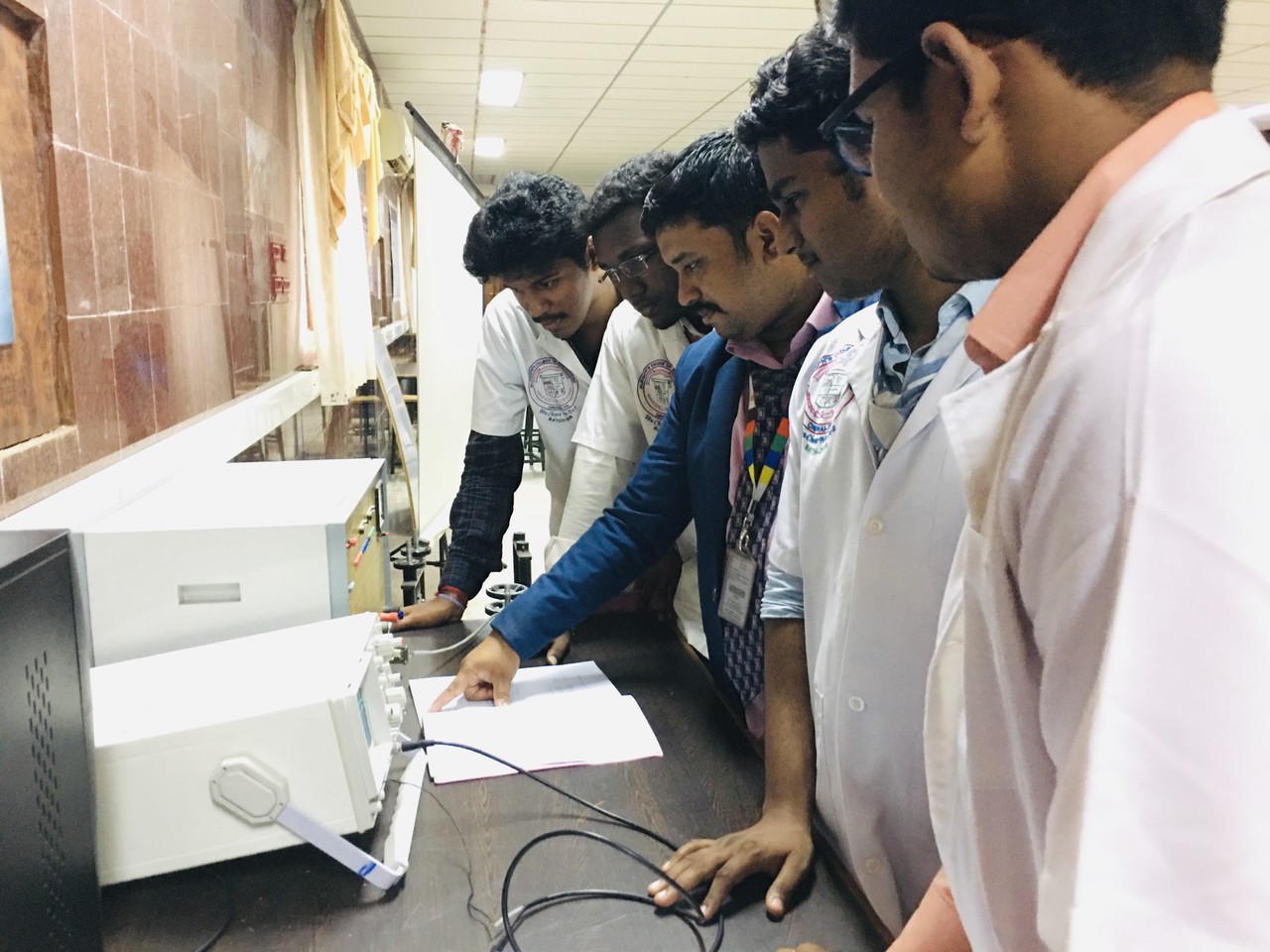
POWER ELECTRONICS LAB
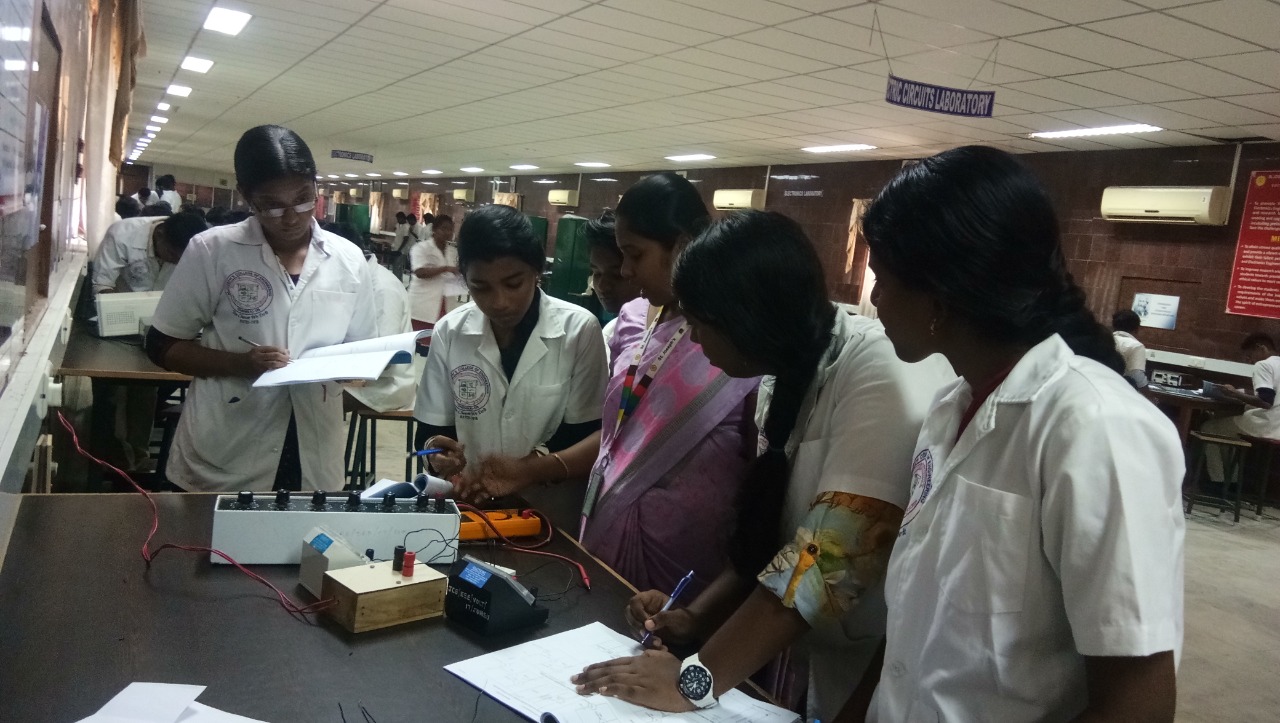
CIRCUITS LAB
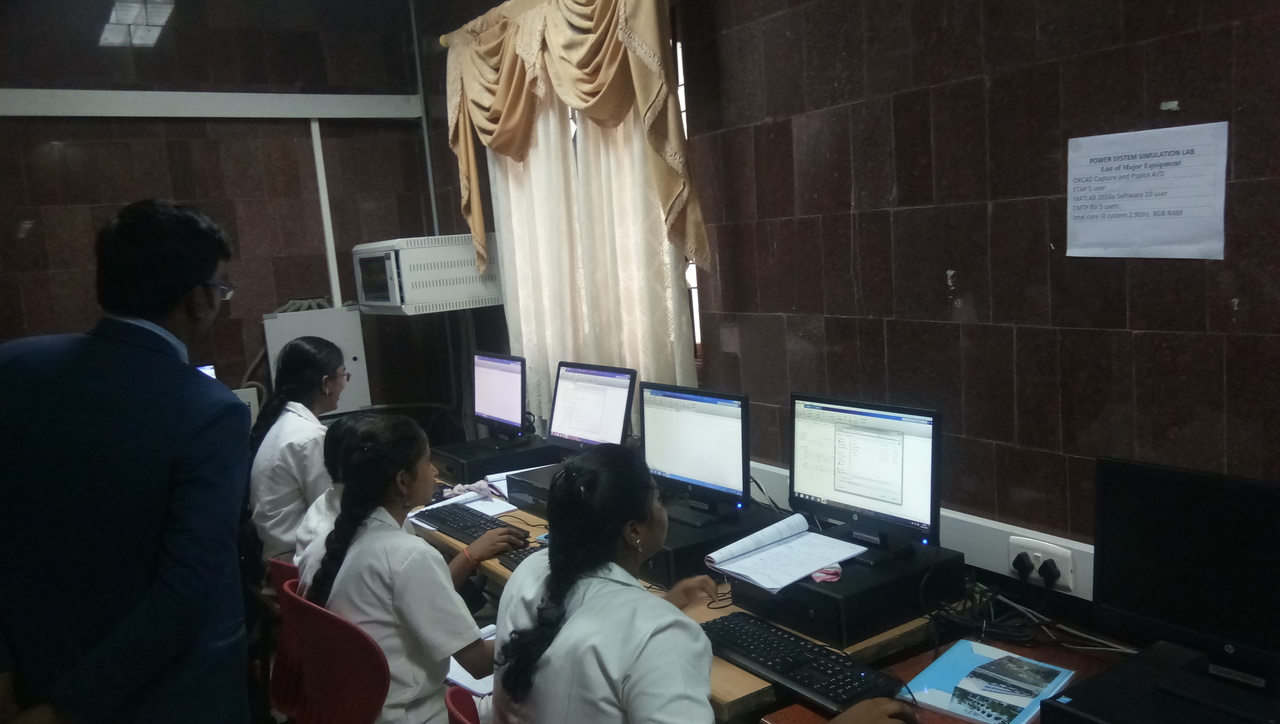
POWER SYSTEM SIMULATION LAB
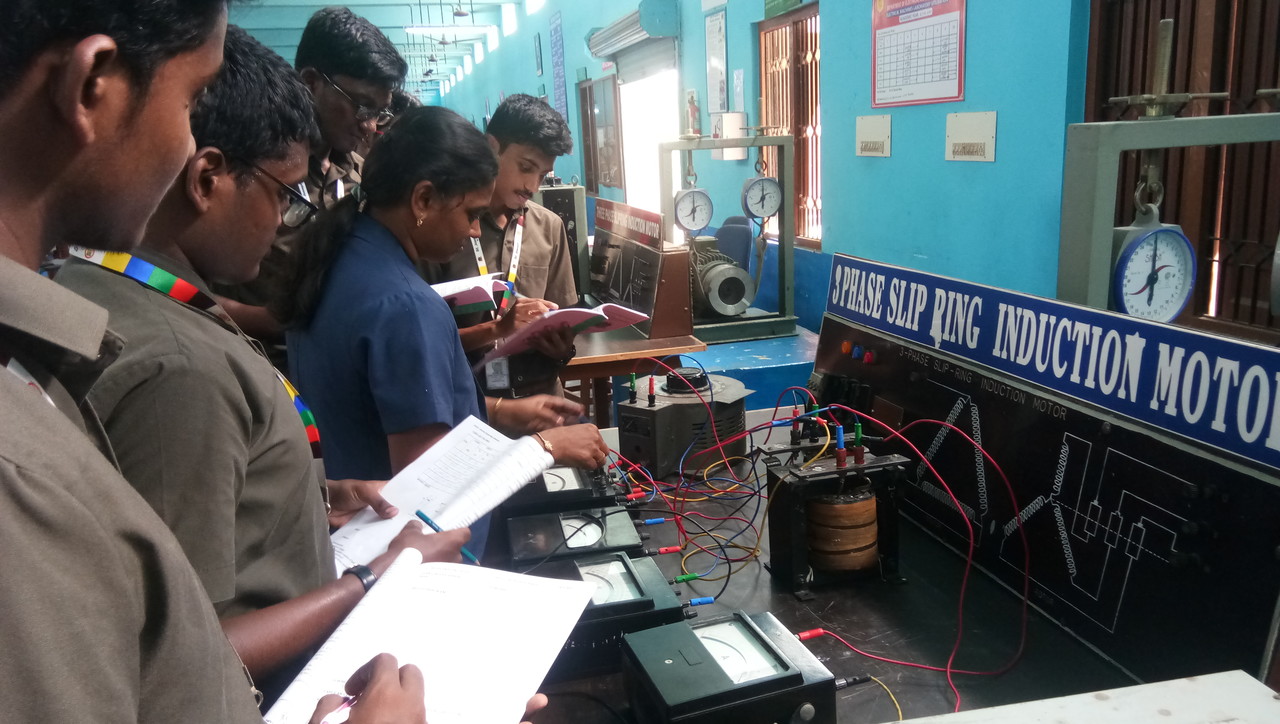
ELECTRICAL MACHINES LAB
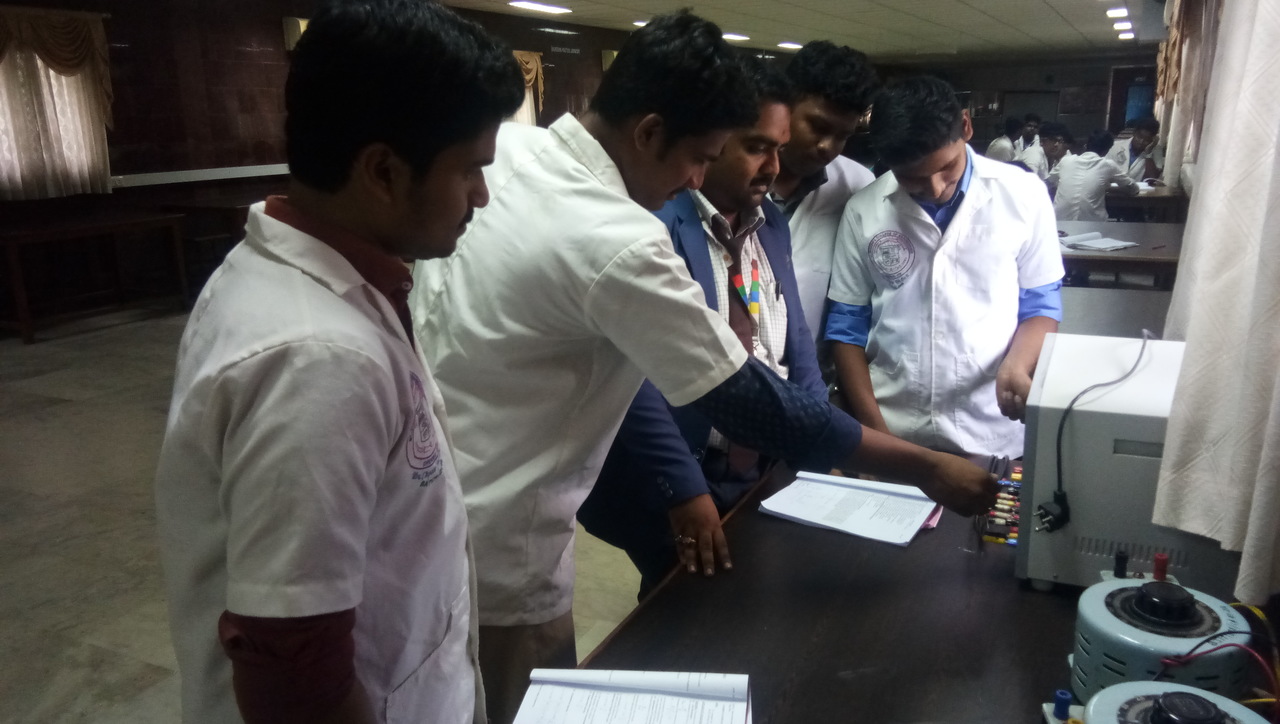
CONTROL AND INSTRUMENTATION LAB
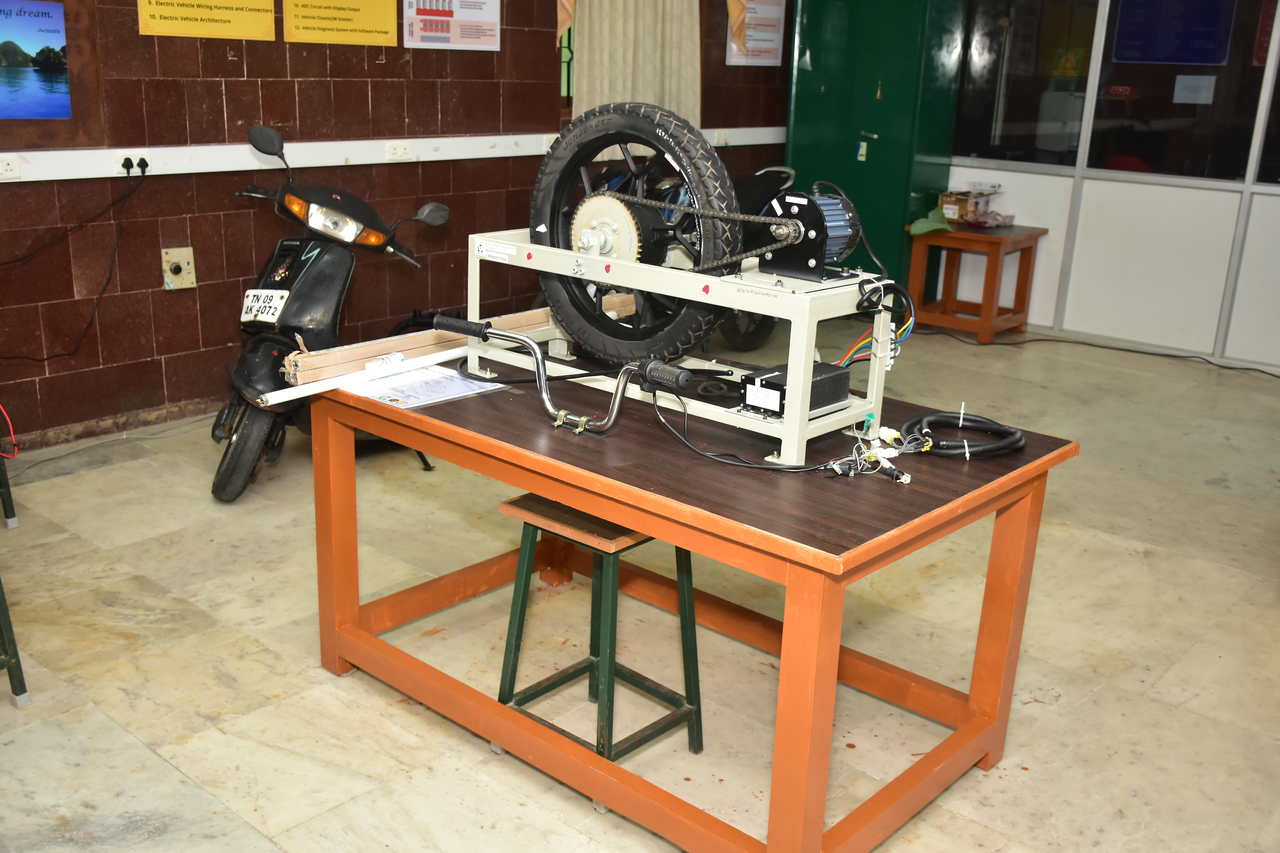
Electric vehicle Lab
